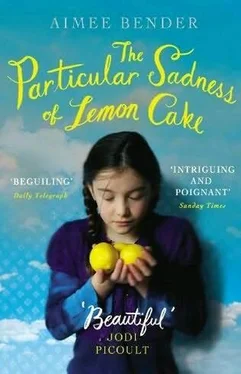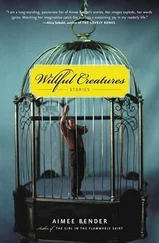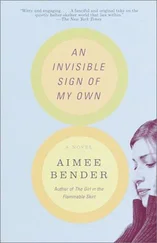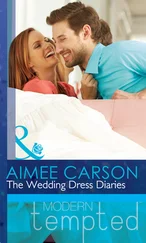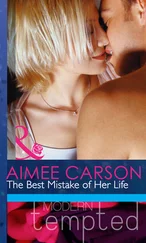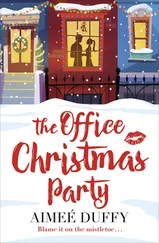I reached over to touch my father’s hand. His eyes found mine.
I’m sorry, he said, his eyes a little stricken.
He gripped my hand back, hard, and the scared light intensified for a second, blazed, then faded from his eyes. He rubbed his free hand over his face. Whew, he said.
Late, he said, in a new voice. He released our grip and clapped a steady hand down on my shoulder.
Time for bed, I said, sitting up on my knees.
He closed the album but he kept his hand on my shoulder and didn’t release it, and there were more words in that hand, keeping me there, a little more he wanted to say. It was like once he’d revealed one big thing he thought he might as well tell everything he possibly could. I could see the athlete’s urge in it, the sprinter’s impulse to throw all things terrifying into one moment and then go to bed and sleep it gone.
Just one more thing, he said.
You saw something that day, didn’t you, he said.
The ray of moonlight illuminated his face.
When? I asked, even though I knew.
He didn’t answer. I kept my head resting on the arm of the chair.
Yes, I said.
I don’t want to know what you saw, he said, placing the album on a side table. I just want to know one thing. Okay?
Okay, I said, in a small voice.
Is he coming back? he asked.
No.
He nodded vigorously, as if he’d prepared himself. He kept nodding, for a while.
That’s what I thought, he said. It’s been too long.
He pressed down on his forehead, as if to press the thought in there.
Did he say anything? That day in his apartment? Did he ask you for anything? At the hospital?
No, I said.
He wiggled his feet on the carpet. The silver stripes on his running shoes made glinty sparks in the moonlight.
Is he okay? he asked.
I don’t know, I said. I don’t know how to answer that.
He has some kind of skill? Dad said.
I closed my eyes. Yes, I said. Him too.
For a half-hour or so, my father pressed and wiggled. Shook and tilted. Pushed the news around his body like a pinball had fallen in there and was dodging around his bones and tendons. It was too much for me to watch or think about, so I kept my eyes closed and slept a little.
Finally, I woke up when the moon had lowered enough to send a fresh ray onto the chair and side table, lighting up the gilded print on the front of the photo album, which said Photo Album . My father sat alert, still and calm again.
I unwound myself from the floor. Thanked him for the talk. Kissed him good night. I think I’ll just take a walk, he said, standing, and he slipped out the front door and into the trail of white that lit his track down the sidewalk.
Sunday morning, I walked over to the café for work.
It was a fair May morning, air cleaner than usual, the rugged San Fernando Mountains detailed in the distance as if cars had never been invented. I was early; the doors of La Lyonnaise were still closed.
I walked around the brick wall storefront, watching birds hop on the telephone lines, and knocked at the back until Monsieur turned the knob and let me in.
By ten, about seven or so hungry people had gathered outside the café, and when the door opened, they all headed inside to take their spots for brunch. Outside, a light wind from the ocean blew the air clean, and this was the air that followed them in, washing through the restaurant. I washed dishes for three hours, my head full of my father and George and hospitals and straps, and as the line of silverware eased I asked the main waiter if I could take a half-hour break for lunch. When he said yes, I left the kitchen for a change and headed over to the wine-tasting counter, where I sat myself on one of the stools between a big man with heavy jowls and a petite dark-haired woman wrapped in a red scarf. Monsieur came over from the back room, wiping his cheeks down with the sheet of his hand.
Mimosa? he said, pulling down a champagne glass.
Sure, said the jowly man.
I’d like to try a food tasting, I said.
Monsieur cocked his head. Late-morning wake-up lines still radiated from his eye corners.
A food tasting? he said.
A glass of Chardonnay, please, said the petite woman in the red scarf. Monsieur lifted another glass off the wall, set it upright.
Could I eat my food here, and tell you what I taste in it? I asked, my voice wavering a little.
Monsieur shrugged. I suppose so, he said. Aren’t you our dishwasher?
I am, I said.
Good work, said Monsieur.
Sounds fun, said the man. Can I too?
Monsieur popped the cork out of a bottle of white wine, and poured a shimmering glass for the woman.
A quiche, please, I said.
Quiche, echoed the man. Delicious.
The woman with the red scarf spent a few focused minutes with her nose buried in the rim of the wineglass. Madame wandered out from the back, where the smell of caramelizing onions drifted out to us at the counter, like a greeting of midday and sweetness and industry, and she and Monsieur spent a few minutes talking closely, his hand resting easily on the nape of her neck. A waiter ducked into the kitchen and returned with two small plates, holding pie slices of golden-crusted yellow quiche. Monsieur filled another glass of wine for a table, and then brought out the New York Times Sunday crossword and a bitten-up pencil. He perched on his stool, behind the counter, and began reading through the clues.
Next to me, the jowly man grabbed his plate. Outside, cars drove up and down Vermont, ducking into parking spots. I looked down at the quiche, with its crisped brown golden edges.
Picked up my fork.
The man next to me ate his mouthful in a rush.
So-we say what we taste in here? he said.
Sure, I said.
Eggs, he said. I taste eggs.
I laughed. Monsieur kept his eyes on his crossword, which was blank.
Yup, Monsieur said, to the page. True, true. There are definitely eggs in quiche.
And this wine has a hint of roses? said the woman next to me.
I took a bite of my quiche, made with such warmth and balance, and swallowed.
I just want to add that the eggs are from Michigan, I said.
The jowly man pursed his lips. We’re not talking about location, he said. He took another bite. Cream, he said.
I pulled my stool in closer, to the counter. Madame came over from the kitchen and stood in the door frame.
Yes, she said. There is cream in quiche.
Actually, I think it’s half-and-half, I said.
No, she said, but she blushed a little. Ah, she said. It’s you. Monsieur glanced up, from his crossword.
I’m on a break, I said.
She nodded, distracted. Her eyes skated up the side wall.
See, there are two different milks, I said, leaning in, on my stool. One is cream, from Nevada, I think, due to the slightly minty flavor, but then there’s regular milk too, from Fresno.
Well, she said. She stepped into the kitchen and I heard her open up the refrigerator, take out a carton.
Monsieur carefully placed four letters into boxes. Quiche Lorraine, he said, to the paper. Named for the Lorraine region of northeastern France, eaten as early as the sixteenth century. German influence.
Ham, said the lady in the red scarf.
I took a sip of water.
Organic pigs, I added. Northern California, I said.
She’s making this up, said the jowly man.
Am I right? I said.
Monsieur twirled his pencil, chuckling.
How do you know they’re organic? he said.
It’s in the aftertaste, I said. Grainier. I’m thinking east of Modesto, I said.
Fresno, said Monsieur, pffing. Same as the milk, he said. There’s a farmer we really like. Ben.
The butter is French butter, I said. Not pasteurized. The parsley is from San Diego. The parsley farmer is a jerk.
Читать дальше
